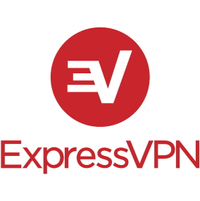Are VPNs legal in Canada?
From hiding your internet activity to streaming US Netflix, VPNs have plenty of legal uses.

Virtual private networks, better known as VPNs, are one of the easiest ways for people to protect their data and identity, and keep their online activity hidden from the prying eyes of government agencies, internet service providers (ISPs), and hackers. That’s not all—because VPNs enable users to connect to servers around the world, they can also be used to unblock geo-specific content on streaming providers such as Netflix. So if you’re using a Canada VPN, you should be able to access content from US Netflix.
In Canada, there’s a growing number of people looking for the best VPN, but many potential users are concerned about the legality of using such a service. In this article, we’ll explore whether VPNs are legal and for what purposes you might want to use one.
- Setup a VPN for any device with our simple, comprehensive guide
VPNs are entirely legal in Canada
Using a VPN in Canada is 100% legal, like in most countries (there are some exceptions, like China, Iraq, North Korea, and the UAE). The reasons why people use a VPN in Canada tend to differ from person to person.
However, whether you want to enhance your digital security, hide your internet activity from snoops, stream geo-blocked content, or stop your ISP from throttling your bandwidth when using a torrenting VPN, it’s completely legal for you to do so.
They don’t make illegal acts legal
Although VPNs are legal in Canada, they don’t magically make illegal acts legal. They simply make it harder to track you down. We don’t condone any illegal activity, and there are still ways the government can track you down and hold you accountable for any crimes you’ve committed whilst using a VPN. Of course, the more serious your crime, the more likely it is that the authorities will try to find you.
In fact, there are some Canadian laws that the government can use to force VPN providers to share their users’ data, which is why it’s important to seek out a zero-logging VPN. That means the VPN does not store any identifying data on users, and even if it’s forced by law to disclose information, it won’t have anything to hand over.
It’s also worth noting that the use of VPNs goes against the user terms and conditions of many content providers, including Netflix.
Sign up to get the BEST of Tom's Guide direct to your inbox.
Get instant access to breaking news, the hottest reviews, great deals and helpful tips.
This means that such services can cancel your subscription if they notice that you’re using a streaming VPN to watch content that’s blocked in your country. However, this rarely happens as they want to keep their customers. Instead, they’ll attempt to block the use of VPNs, preventing you from streaming their content until you’ve disconnected from the VPN.
Why would someone in Canada want a VPN?
Ever heard of the Five Eyes intelligence alliance? Well, it’s a treaty between five countries that have agreed to openly share the information and data that they collect from spying on their own citizens. The five countries that make up the Five Eyes include the USA, UK, Australia, New Zealand, and—you guessed it—Canada.
Although the Five Eyes alliance can be traced back to the post-WWII era, it wasn’t public knowledge until Edward Snowden leaked highly classified information in 2013. While the primary (and official) purpose is to seek out and quell cybercrime and terrorism to safeguard national security, it will come as no surprise that many people don’t trust secretive government agencies that work in the shadows.
Whilst government surveillance might not be a concern, having the ability to stream more content from your favorite providers is always a plus—especially on the nights when you just don’t know what you want to watch.
Which VPN do we recommend for users in Canada?
ExpressVPN stands out from the competition in terms of price, features, and value. With servers in nearly 100 countries, excellent censor-evading power, blazing connection speeds, and reliable access to multiple streaming services, ExpressVPN has everything that one would need from a VPN in Canada.
While some users may prefer certain features of other top VPNs, it’s the best overall option for most users – and now Tom’s Guide readers can claim three months absolutely free.
- Save big money with the best VPN deals
- Amazon users should have a look at the best Fire Stick VPN
- Pick up a bargain with a cheap VPN
Ritoban Mukherjee is a freelance journalist from West Bengal, India whose work on cloud storage, web hosting, and a range of other topics has been published on Tom's Guide, TechRadar, Creative Bloq, IT Pro, Gizmodo, Medium, and Mental Floss.


